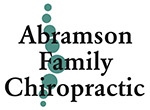Irregular Periods Linked to Greater Risk for Liver Disease
Non-alcoholic fatty liver disease (NAFLD) is a condition that occurs when fat accumulates in the liver from causes other than excessive alcohol consumption, and it is associated with a number of poor health outcomes. An analysis of data concerning 72,092 women under the age of 40 found that those with long or irregular periods were 49% more likely to develop NAFLD over the following four to five years. Journal of Clinical Endocrinology and Metabolism, March 2022
Diet: Sulfur Amino Acids Are Bad for the Heart.
The American Heart Association reports that a high intake of sulfur amino acids—most commonly found in beef, chicken, and milk—may be associated with a 12% increased risk of cardiovascular disease over a three-decade time period. American Heart Association, March 2022
Exercise: Exercise Decreases Clot Risk in Patients with NAFLD.
Patients with non-alcoholic fatty liver disease (NAFLD) are at risk for several poor health outcomes, including blood clots. A recent study that included 24 NAFLD patients found that participating in a 20-week aerobic exercise training program significantly reduced the presence of a protein called plasminogen activator inhibitor, which helps clots remain intact. Hepatology, December 2021
Chiropractic: Mobilization Decreases Pain in Knee Osteoarthritis Patients.
For patients with moderate-to-severe knee osteoarthritis, a new study found that mobilization therapy—a form of treatment provided by doctors of chiropractic—is effective for improving function, reducing pain, and lowering pain sensitivity. European Journal of Physical Rehabilitation and Medicine, January 2022
Mental Attitude: Childhood Troubles Can Have Lifelong Consequences.
Following a review of data from the ESPRIT study, researchers report that experiencing five or more adverse childhood events—such as emotional, physical, and sexual abuse, and emotional and physical neglect—is associated with a 52% increased risk for dementia. Journal of Affective Disorders, May 2022
Wellness/Prevention: Healthy Mouth, Healthy Heart.
Past studies have linked oral and cardiovascular health. A new study that looked at saliva samples from 1,200 women identified 15 types of mouth bacteria that were linked to either an elevated or reduced risk for hypertension. Senior author Dr. Michael LaMonte adds, “This is an interesting finding… and it tells us there may be more to blood pressure control than we understand. We need to keep an open mind.” Journal of the American Heart Association, March 2022
Quote:
“I will go anywhere, provided it is forward.” ~ David Livingstone Chad Abramson, D.C. (425) 315-6262
To Receive The "Weekly Health Updates‚ Every Monday Via Email, Sign Up at www.WeeklyHealthUpdate.com - CODE: 98204ABRAM
This information should not be substituted for medical or chiropractic advice. Any and all health care concerns, decisions, and actions must be done through the advice and counsel of a health care professional who is familiar with your updated medical history.
